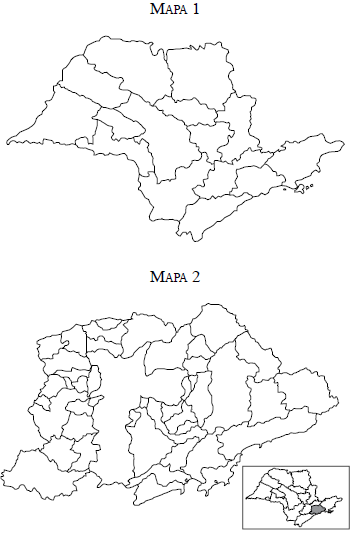Questões de Concurso
Para analista ambiental - engenheiro sanitarista
Foram encontradas 47 questões
Resolva questões gratuitamente!
Junte-se a mais de 4 milhões de concurseiros!
Plano, programa, política e projeto são vocábulos de uso frequente por parte dos gestores ambientais, responsáveis pela formulação e tomada de decisão. O seu uso adequado requer o entendimento do conceito associado a cada um deles. Analise o texto a seguir, procurando completá-lo corretamente.
“Uma intervenção ligada a planejamento, concepção, construção e operação de um empreendimento de determinado setor produtivo, obra ou infraestrutura constitui o que chamamos de _______________. Entendemos como _______________ a linha de conduta geral ou direção apoiada por juízos de valor, e como _______________ a estratégia composta de objetivos, alternativas e medidas, incluindo prioridades. Denominamos _______________ a agenda organizada dos compromissos, propostas, instrumentos e atividades”.
Assinale a alternativa que preenche, correta e respectivamente,
as lacunas.
As novas exigências em governança ambiental demandam sofisticação na qualidade da informação sobre o espaço. Contudo, mais do que nomenclaturas e técnicas sofisticadas da área de Sistema de Informação Geográfica, os conceitos básicos de escala são imprescindíveis para a leitura e interpretação de mapas. Observe os mapas seguintes, que representam o Estado de São Paulo com suas mesorregiões (mapa1) e a Mesorregião Metropolitana de São Paulo (mapa 2).

Comparando os dois mapas, pode-se afirmar que
Observe a tabela a seguir:

A correta associação dos equipamentos de controle da poluição
com as aplicações I, II e III nesta tabela é, respectivamente:
Leia o texto para responder a questão.
DIET DRINKS "LINK TO DEPRESSION" QUESTIONED
Experts are questioning whether diet drinks could raise depression risk, after a large study has found a link.
The US research in more than 250,000 people found depression was more common among frequent consumers of artificially sweetened beverages. The work, which will be presented at the American Academy of Neurology’s annual meeting, did not look at the cause for this link.
Drinking coffee was linked with a lower risk of depression.
People who drank four cups a day were 10% less likely to be diagnosed with depression during the 10-year study period than those who drank no coffee. But those who drank four cans or glasses of diet fizzy drinks or artificially sweetened juice a day increased their risk of depression by about a third. Lead researcher Dr Honglei Chen, of the National Institutes of Health in North Carolina, said: “Our research suggests that cutting out or down on sweetened diet drinks or replacing them with unsweetened coffee may naturally help lower your depression risk.”
But he said more studies were needed to explore this. There are many other factors that may be involved. And the findings – in people in their 50s, 60s, 70s and 80s and living in the US – might not apply to other populations. The safety of sweeteners, like aspartame, has been extensively tested by scientists and is assured by regulators.
Gaynor Bussell, of the British Dietetic Association, said: “Sweeteners used to be called ‘artificial’ sweeteners and unfortunately the term ‘artificial’ has evoked suspicion. As a result, sweeteners have been very widely tested and reviewed for safety and the ones on the market have an excellent safety track record. However, the studies on them continue and this one has thrown up a possibly link – not a cause and effect – with depression.”
(http://www.bbc.co.uk/news/health-20943509.09.01.2013. Adaptado)
Leia o texto para responder a questão.
DIET DRINKS "LINK TO DEPRESSION" QUESTIONED
Experts are questioning whether diet drinks could raise depression risk, after a large study has found a link.
The US research in more than 250,000 people found depression was more common among frequent consumers of artificially sweetened beverages. The work, which will be presented at the American Academy of Neurology’s annual meeting, did not look at the cause for this link.
Drinking coffee was linked with a lower risk of depression.
People who drank four cups a day were 10% less likely to be diagnosed with depression during the 10-year study period than those who drank no coffee. But those who drank four cans or glasses of diet fizzy drinks or artificially sweetened juice a day increased their risk of depression by about a third. Lead researcher Dr Honglei Chen, of the National Institutes of Health in North Carolina, said: “Our research suggests that cutting out or down on sweetened diet drinks or replacing them with unsweetened coffee may naturally help lower your depression risk.”
But he said more studies were needed to explore this. There are many other factors that may be involved. And the findings – in people in their 50s, 60s, 70s and 80s and living in the US – might not apply to other populations. The safety of sweeteners, like aspartame, has been extensively tested by scientists and is assured by regulators.
Gaynor Bussell, of the British Dietetic Association, said: “Sweeteners used to be called ‘artificial’ sweeteners and unfortunately the term ‘artificial’ has evoked suspicion. As a result, sweeteners have been very widely tested and reviewed for safety and the ones on the market have an excellent safety track record. However, the studies on them continue and this one has thrown up a possibly link – not a cause and effect – with depression.”
(http://www.bbc.co.uk/news/health-20943509.09.01.2013. Adaptado)
Leia o texto para responder a questão.
DIET DRINKS "LINK TO DEPRESSION" QUESTIONED
Experts are questioning whether diet drinks could raise depression risk, after a large study has found a link.
The US research in more than 250,000 people found depression was more common among frequent consumers of artificially sweetened beverages. The work, which will be presented at the American Academy of Neurology’s annual meeting, did not look at the cause for this link.
Drinking coffee was linked with a lower risk of depression.
People who drank four cups a day were 10% less likely to be diagnosed with depression during the 10-year study period than those who drank no coffee. But those who drank four cans or glasses of diet fizzy drinks or artificially sweetened juice a day increased their risk of depression by about a third. Lead researcher Dr Honglei Chen, of the National Institutes of Health in North Carolina, said: “Our research suggests that cutting out or down on sweetened diet drinks or replacing them with unsweetened coffee may naturally help lower your depression risk.”
But he said more studies were needed to explore this. There are many other factors that may be involved. And the findings – in people in their 50s, 60s, 70s and 80s and living in the US – might not apply to other populations. The safety of sweeteners, like aspartame, has been extensively tested by scientists and is assured by regulators.
Gaynor Bussell, of the British Dietetic Association, said: “Sweeteners used to be called ‘artificial’ sweeteners and unfortunately the term ‘artificial’ has evoked suspicion. As a result, sweeteners have been very widely tested and reviewed for safety and the ones on the market have an excellent safety track record. However, the studies on them continue and this one has thrown up a possibly link – not a cause and effect – with depression.”
(http://www.bbc.co.uk/news/health-20943509.09.01.2013. Adaptado)
Leia o texto para responder a questão.
DIET DRINKS "LINK TO DEPRESSION" QUESTIONED
Experts are questioning whether diet drinks could raise depression risk, after a large study has found a link.
The US research in more than 250,000 people found depression was more common among frequent consumers of artificially sweetened beverages. The work, which will be presented at the American Academy of Neurology’s annual meeting, did not look at the cause for this link.
Drinking coffee was linked with a lower risk of depression.
People who drank four cups a day were 10% less likely to be diagnosed with depression during the 10-year study period than those who drank no coffee. But those who drank four cans or glasses of diet fizzy drinks or artificially sweetened juice a day increased their risk of depression by about a third. Lead researcher Dr Honglei Chen, of the National Institutes of Health in North Carolina, said: “Our research suggests that cutting out or down on sweetened diet drinks or replacing them with unsweetened coffee may naturally help lower your depression risk.”
But he said more studies were needed to explore this. There are many other factors that may be involved. And the findings – in people in their 50s, 60s, 70s and 80s and living in the US – might not apply to other populations. The safety of sweeteners, like aspartame, has been extensively tested by scientists and is assured by regulators.
Gaynor Bussell, of the British Dietetic Association, said: “Sweeteners used to be called ‘artificial’ sweeteners and unfortunately the term ‘artificial’ has evoked suspicion. As a result, sweeteners have been very widely tested and reviewed for safety and the ones on the market have an excellent safety track record. However, the studies on them continue and this one has thrown up a possibly link – not a cause and effect – with depression.”
(http://www.bbc.co.uk/news/health-20943509.09.01.2013. Adaptado)
Leia o texto para responder a questão.
DIET DRINKS "LINK TO DEPRESSION" QUESTIONED
Experts are questioning whether diet drinks could raise depression risk, after a large study has found a link.
The US research in more than 250,000 people found depression was more common among frequent consumers of artificially sweetened beverages. The work, which will be presented at the American Academy of Neurology’s annual meeting, did not look at the cause for this link.
Drinking coffee was linked with a lower risk of depression.
People who drank four cups a day were 10% less likely to be diagnosed with depression during the 10-year study period than those who drank no coffee. But those who drank four cans or glasses of diet fizzy drinks or artificially sweetened juice a day increased their risk of depression by about a third. Lead researcher Dr Honglei Chen, of the National Institutes of Health in North Carolina, said: “Our research suggests that cutting out or down on sweetened diet drinks or replacing them with unsweetened coffee may naturally help lower your depression risk.”
But he said more studies were needed to explore this. There are many other factors that may be involved. And the findings – in people in their 50s, 60s, 70s and 80s and living in the US – might not apply to other populations. The safety of sweeteners, like aspartame, has been extensively tested by scientists and is assured by regulators.
Gaynor Bussell, of the British Dietetic Association, said: “Sweeteners used to be called ‘artificial’ sweeteners and unfortunately the term ‘artificial’ has evoked suspicion. As a result, sweeteners have been very widely tested and reviewed for safety and the ones on the market have an excellent safety track record. However, the studies on them continue and this one has thrown up a possibly link – not a cause and effect – with depression.”
(http://www.bbc.co.uk/news/health-20943509.09.01.2013. Adaptado)
Leia a tirinha para responder a questão.

...sabíamos respeitar os mais velhos! / E quando eles falavam nós calávamos a boca!
Alterando apenas o tempo dos verbos destacados para o tempo presente, sem qualquer outro ajuste, tem-se, de acordo com a norma-padrão da língua portuguesa:
Leia a tirinha para responder a questão.

Leia o texto para responder à questão.
É fundamental que essa visão de adensamento com uso abundante de transporte coletivo seja recuperada para que possamos reverter esse processo de uso cada vez mais intenso do transporte individual devorando espaços viários que não têm a capacidade de absorver a crescente frota de automóveis...
Assinale a alternativa que apresenta a substituição correta do pronome destacado, de acordo com a norma-padrão da língua portuguesa.